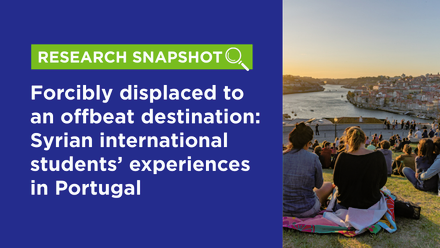The psychological foundations of transformational leadership

Beyond diversity, equity and inclusion (DEI) policies, transformational leadership requires higher education institutions (HEIs) to foster a workplace that meets everyone’s psychological needs – those of its students, faculty members and administrative staff. Research shows that when individuals feel psychologically safe and valued, they are more engaged, motivated and productive at work. Three key psychological factors contribute to an inclusive workplace:
- Psychological safety – Everyone at HEIs must feel comfortable expressing ideas and concerns without fear of negative consequences. A safe environment fosters innovation and open dialogue.
- Psychological meaningfulness – Students, faculty members and administrative staff need to feel that their work has purpose and that their contributions are valued. Recognising and celebrating diverse perspectives strengthens engagement.
- Psychological availability – HEIs’ employees as well as students must have the emotional and mental capacity to engage fully in their roles. An environment free from biases and discrimination reduces stress and fosters well-being.
Psychological safety: the freedom to speak up and be authentic
Amy Edmondson defines psychological safety as individuals’ ability to take risks, express ideas and share concerns without fear of negative consequences such as humiliation or punishment. When higher education employees and students feel psychologically safe, they are more likely to share innovative ideas without fear of criticism. Psychological safety helps individuals engage in open discussions and challenge biases or seek help when needed, improving collaboration and productivity.
However, workplaces that lack psychological safety often foster silence, where employees hesitate to speak up due to fear of rejection or retaliation. This stifles creativity, innovation and inclusivity.
To create psychological safety, inclusive leaders must encourage open dialogue and active listening, foster a non-judgmental environment where employees and students feel valued, and address microaggressions and biases to ensure all voices are respected.
Psychological meaningfulness: the need for purpose and belonging
William Kahn, a leading researcher on workplace engagement describes psychological meaningfulness as the extent to which individuals feel that their contributions matter. Employees and students who experience meaningfulness feel a sense of purpose in their work, are more engaged and committed to their roles, and experience higher job satisfaction and lower burnout.
A lack of meaningfulness leads to disengagement, where higher education employees feel their work is undervalued or disconnected from the company’s mission. To cultivate psychological meaningfulness, inclusive leaders at HEIs should:
- Recognise and celebrate diverse contributions – from students, faculty members and administrative staff alike
- Foster a culture of mentorship and growth among employees as well as students
- Align job roles and admission requirements for academic programmes with individual strengths and interests
Psychological availability: the capacity to fully engage
Psychological availability refers to an individual’s ability to bring their full self to work or their place of studies without distraction or emotional exhaustion. Factors such as workplace discrimination, bias and unconscious biases, or exclusion can negatively impact availability, leading students and employees to experience stress, mental fatigue and disengagement.
Research shows that employees who experience workplace discrimination have higher stress levels and lower productivity. They are more likely to withdraw socially or disengage mentally, resulting in higher turnover and financial losses. To enhance psychological availability, HEI presidents must make mental health a priority, promote well-being resources and stress management programmes to both students and employees. Senior leadership should ensure equal opportunities for career growth and access to academic programmes across all identities and reduce workplace biases and microaggressions that create emotional distress.
The business case for psychological safety and DEI
Transformational leadership goes beyond policy implementation—it requires a deep understanding of psychological safety, meaningfulness and availability to truly empower employees. By creating a culture where individuals feel valued, heard and supported, organisations not only foster positive environments but also unlock greater levels of engagement, productivity, and innovation.
The impact of psychology is not just social – it directly affects organisational success. Research from Gallup shows that:
- Only 34% of employees are actively engaged in their work
- 53% of employees feel indifferent or disengaged
- Disengaged employees cost companies $450–$550 billion annually in lost productivity and turnover
On the other hand, companies that prioritise psychological safety and inclusion:
- Achieve 50% higher employee retention
- Boost innovation and collaboration
- Outperform competitors by 35% financially
By addressing employees’ and students’ psychological needs alike and fostering an environment of safety, meaningfulness and availability, today's leaders can drive real change in higher education. By committing with genuine action rather than performative gestures, presidents of HEIs can shape workplaces and academic environments – ensuring long-term success and well-being for students, employees and the organisation.






